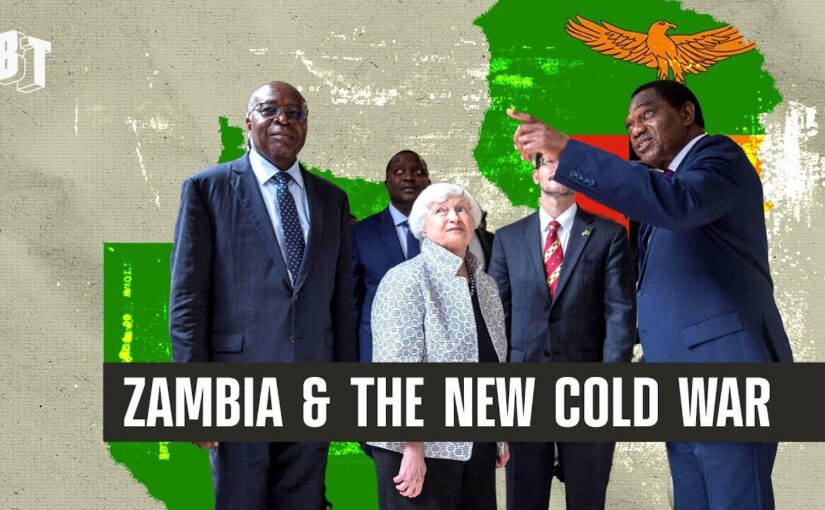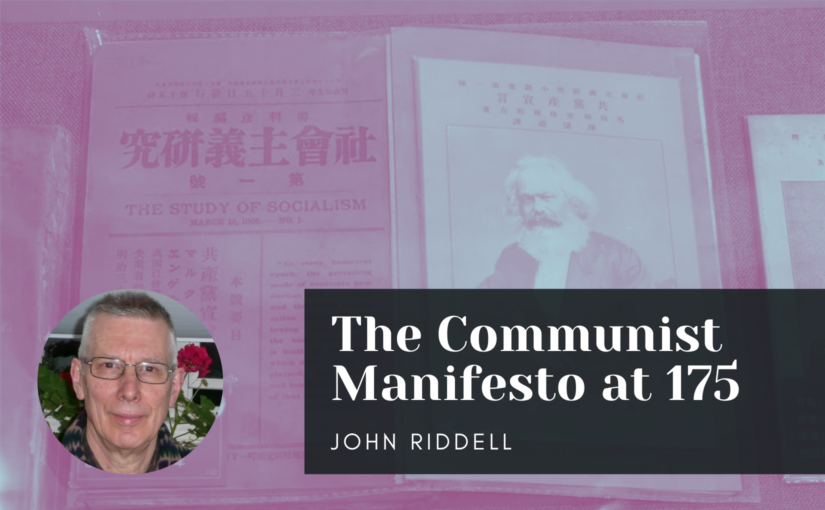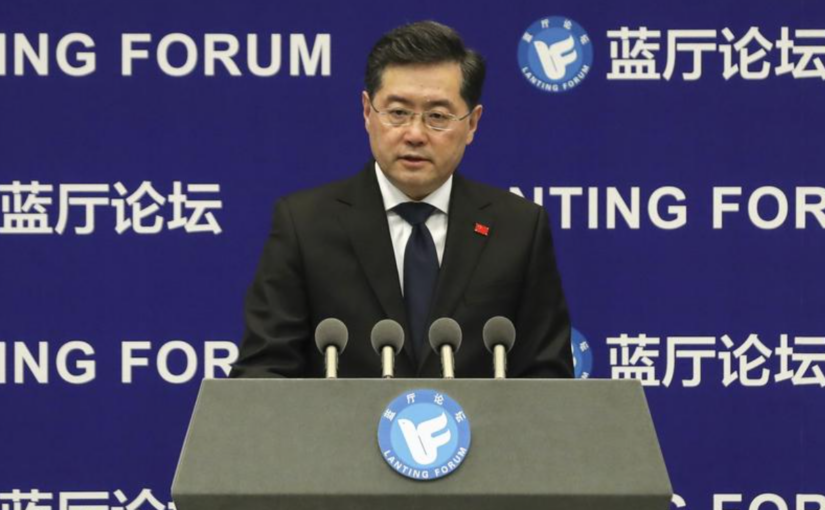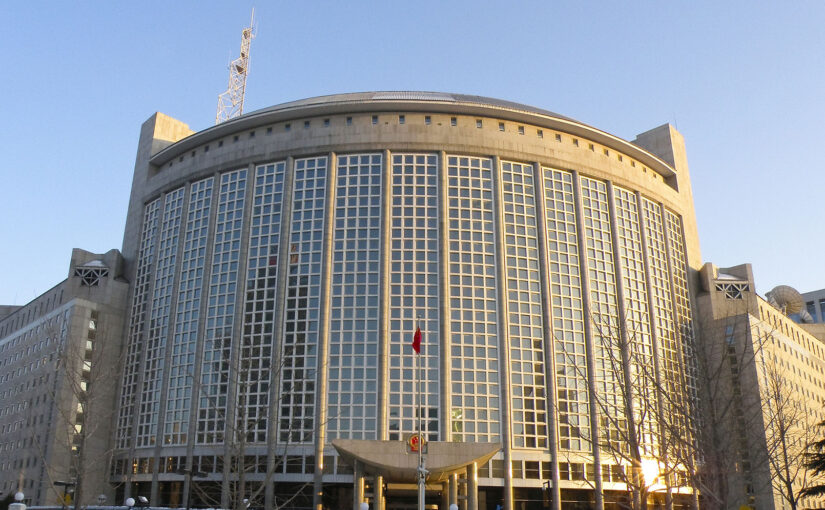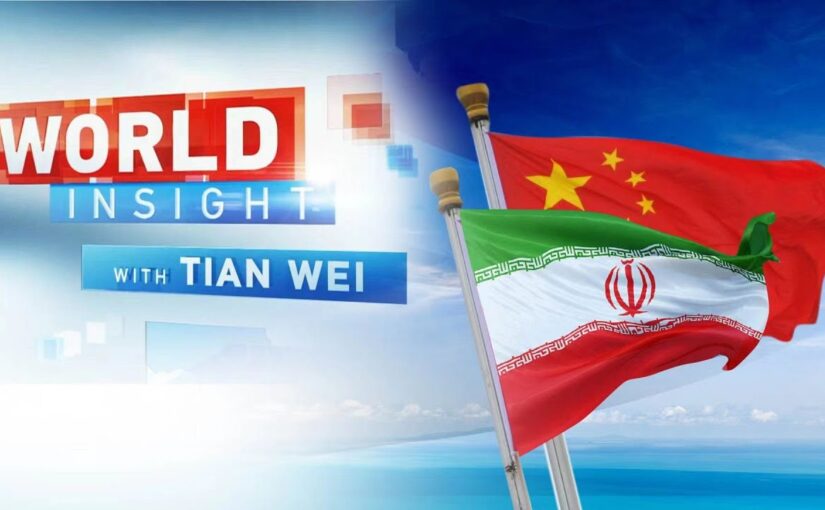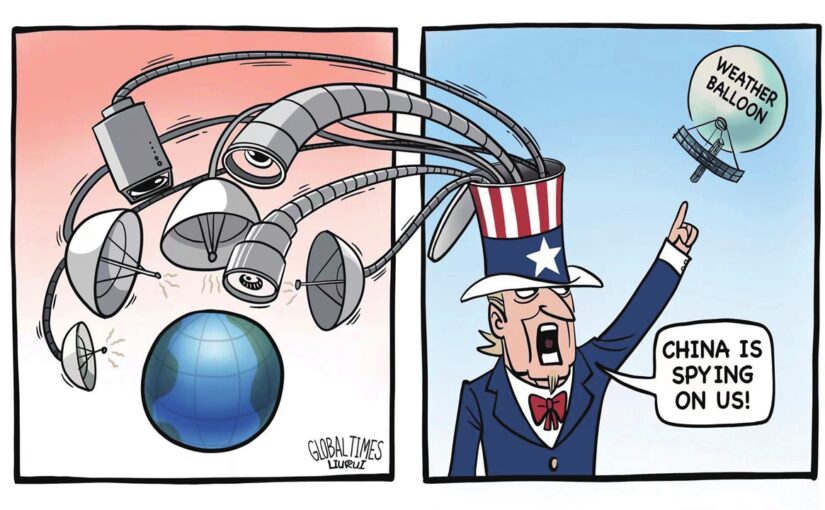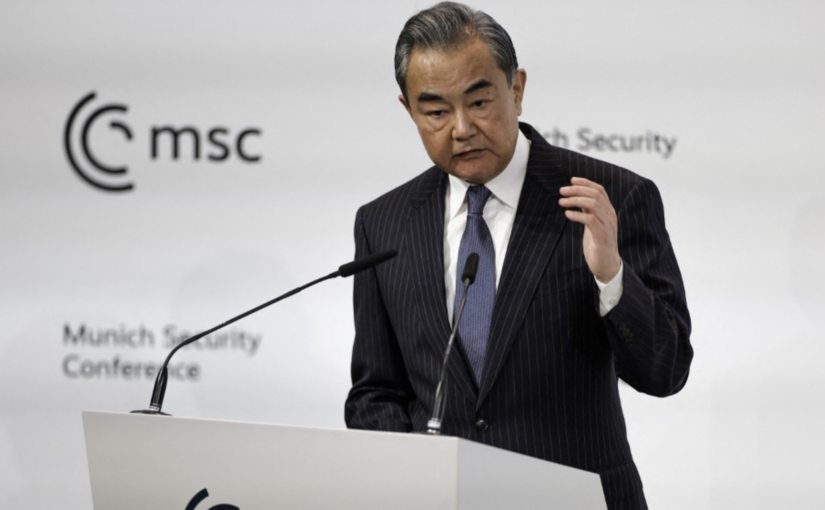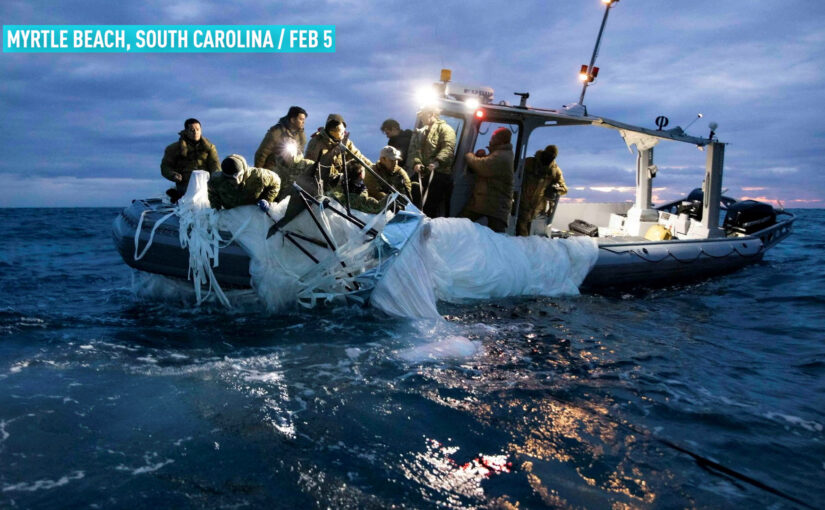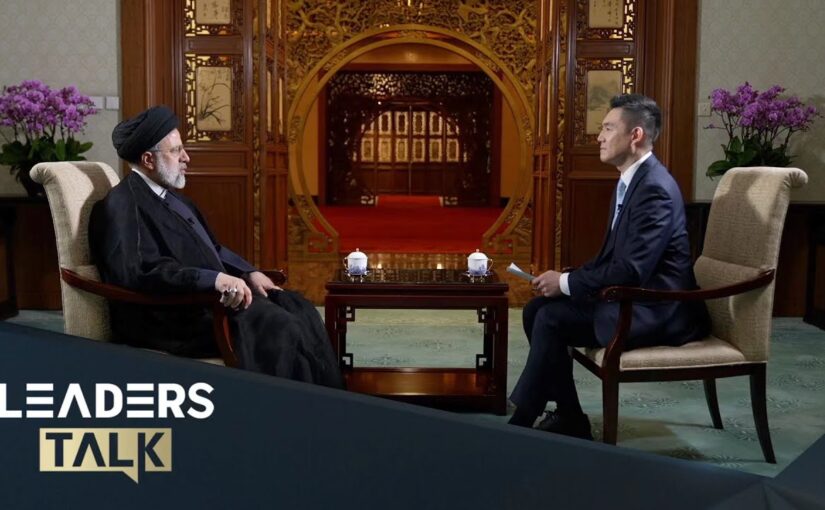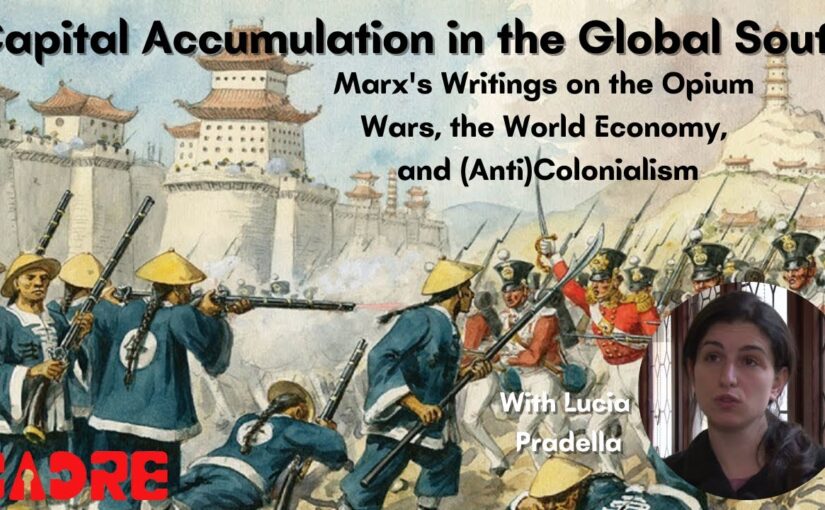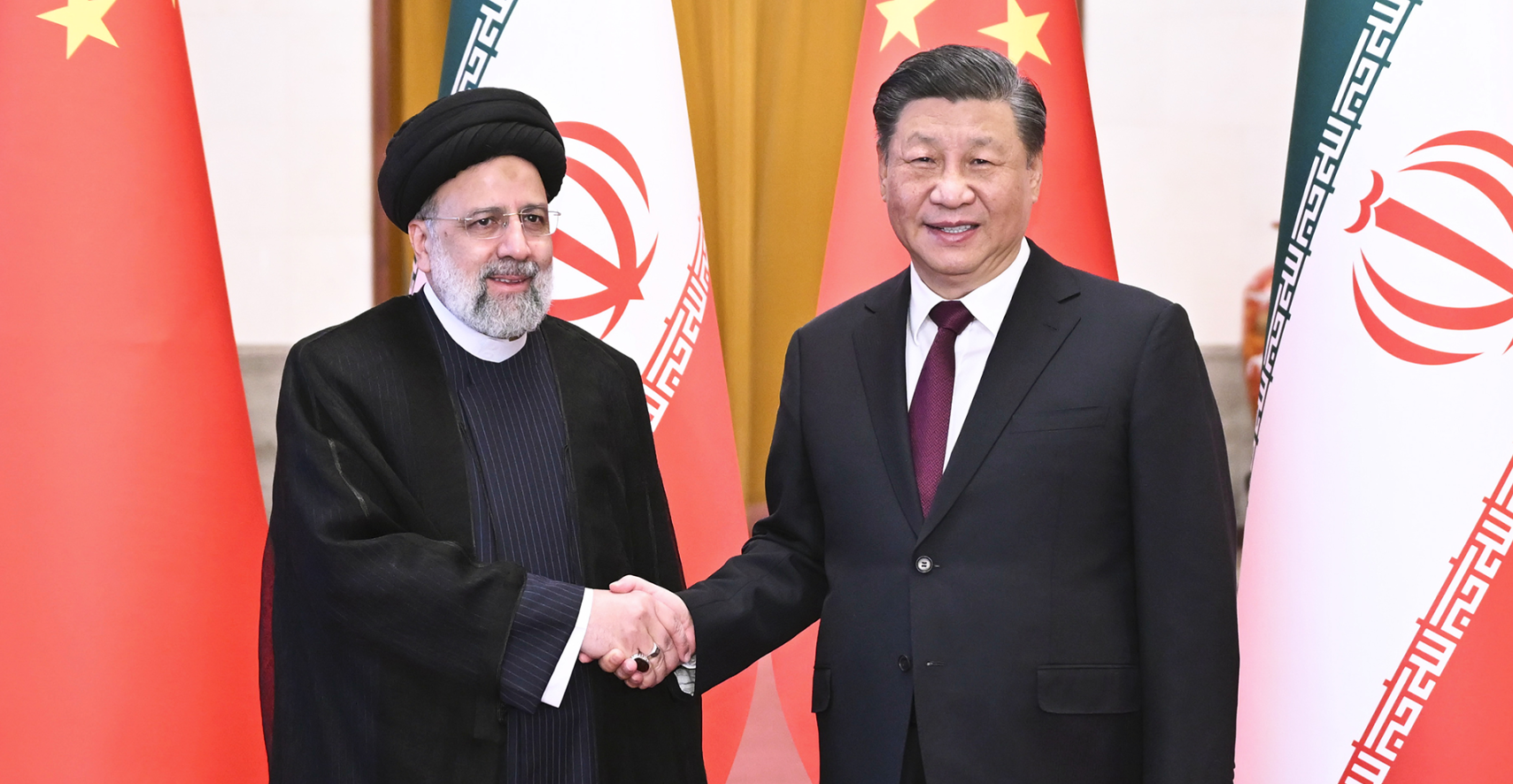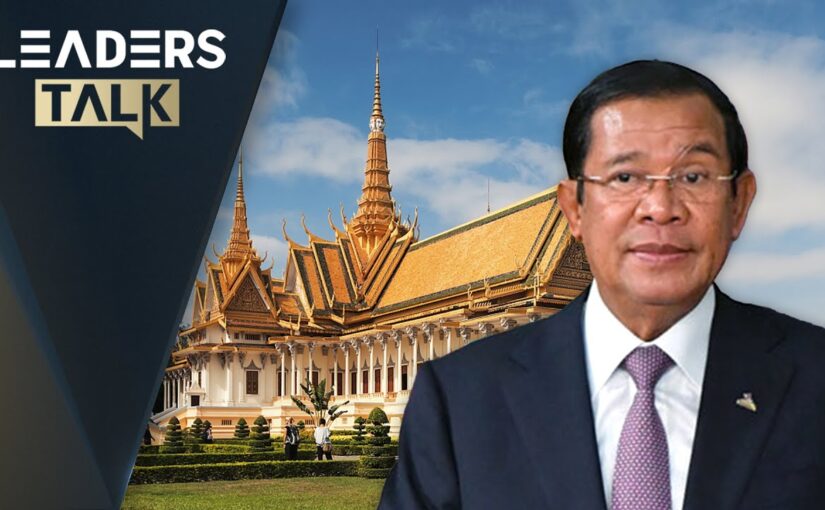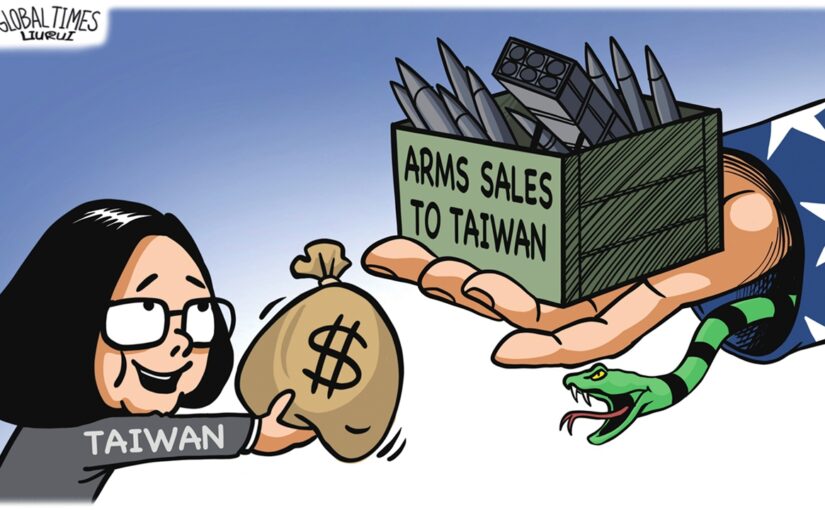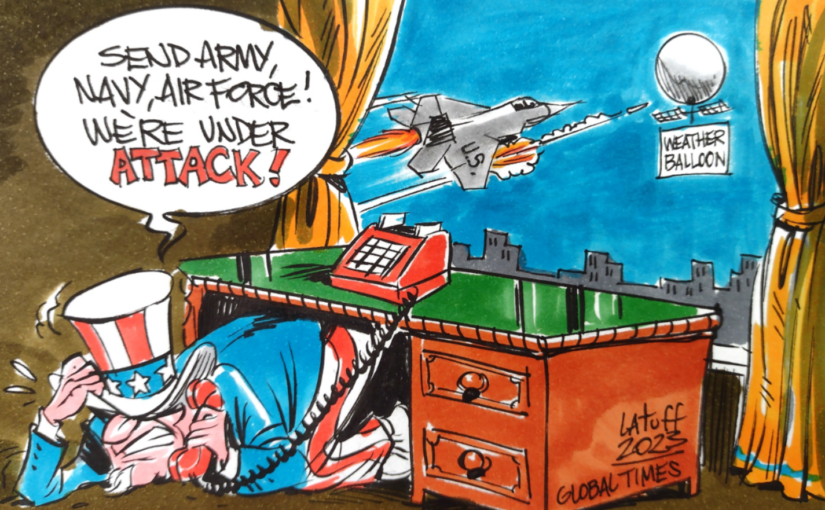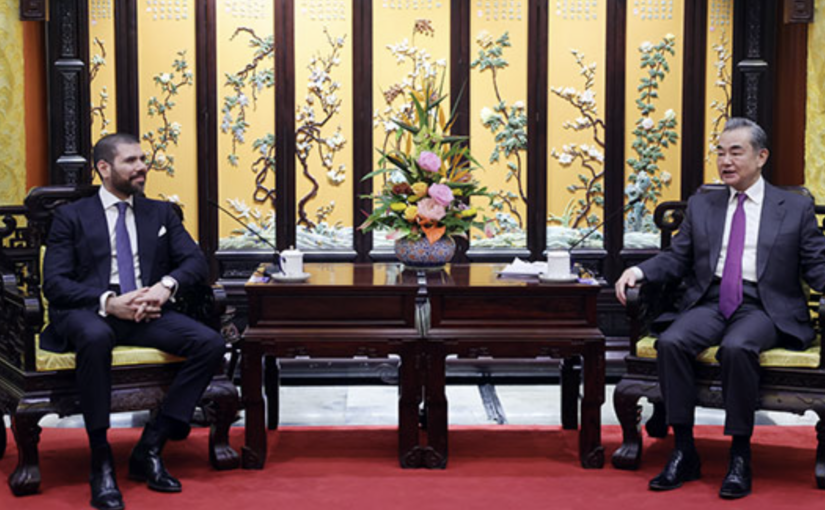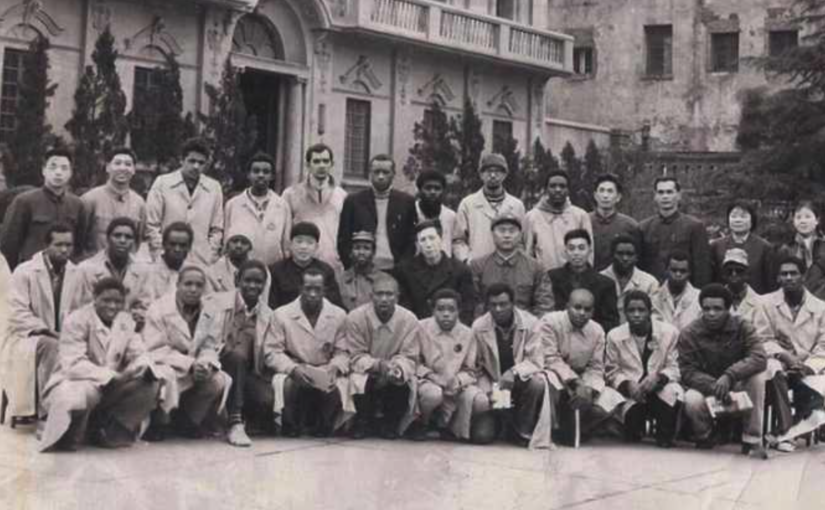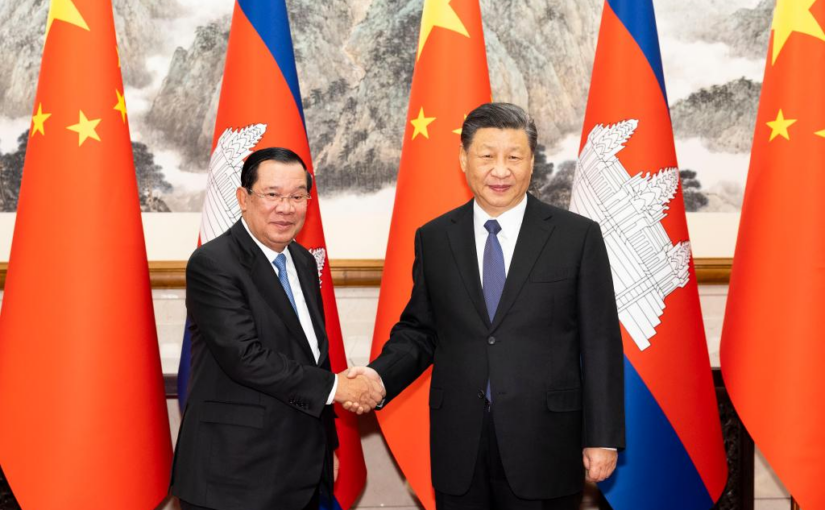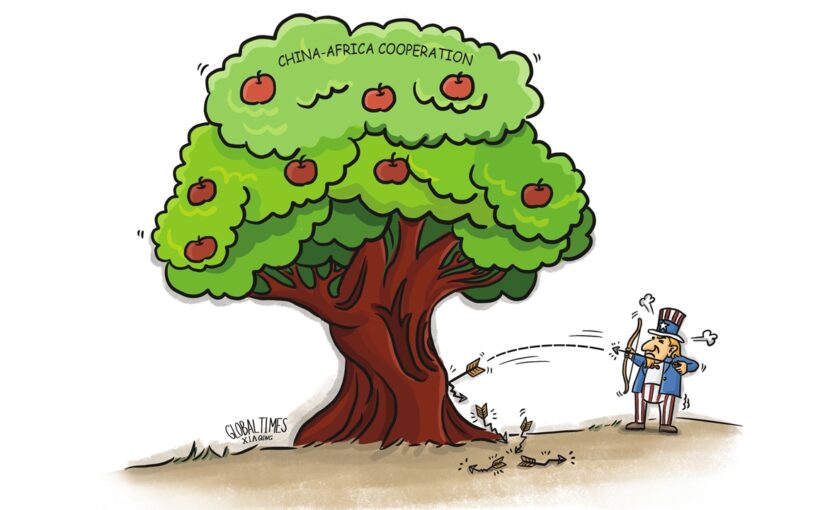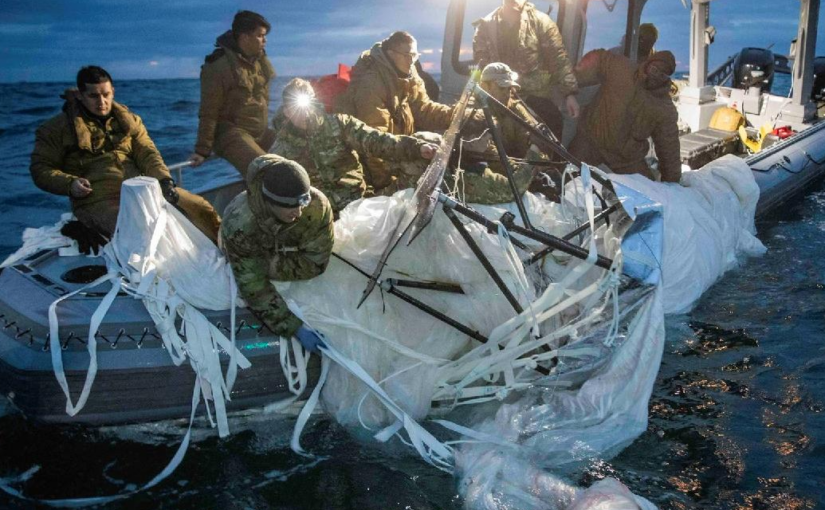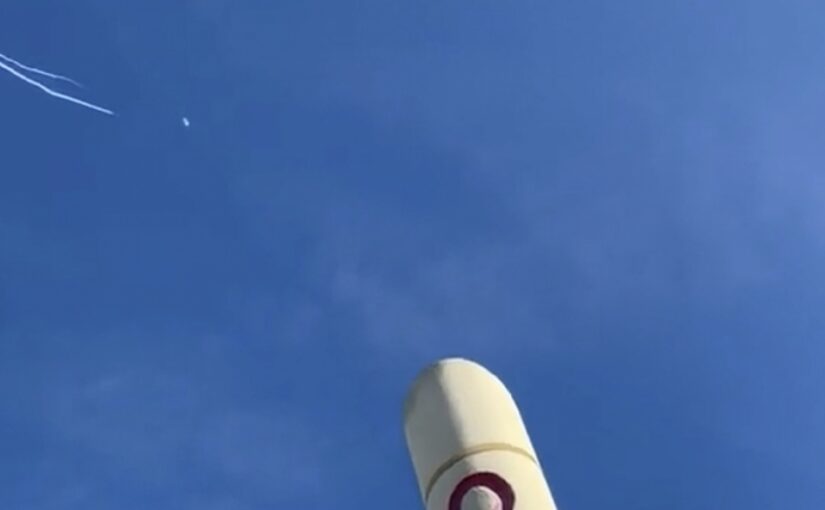In this powerful interview on BreakThrough News, Fred M’membe (leader of the Socialist Party of Zambia) explodes the myth of Chinese colonialism in Zambia. He states: “China has never threatened our independence. We’ve never been subjected to any form of mistreatment or exploitation by China, but we can’t say the same about the US.”
M’membe recalls that China was a key supporter of post-liberation Zambia, providing both economic aid and military equipment to defend against the attacks of the apartheid regime in South Africa. He says that Zambia turned to the US for support but was turned away; China was a true friend, even making enormous sacrifices to build the Tazara Railway, which was essential for the country’s development.
He compares the US’s strategy of domination with China’s strategy of solidarity and friendship: “The US supported the apartheid regimes in South Africa and Rhodesia. The US has been involved in reactionary coups and assassinations all over Africa, including the assassination of Patrice Lumumba, the overthrow of Kwame Nkrumah, the assassination of Muammar Gaddafi. China has never participated in any coup, has never killed an African.”
Referencing the accusations of a “Chinese debt trap”, M’membe points out that China only holds 10 percent of Zambia’s debt. And what have Chinese loans been used for? Hydropower stations, airports, roads, water systems, hospitals, schools, government buildings. “The debt problem we have is the debt we owe to Western institutions, that’s 70 percent. The China debt trap narrative is a lie.”
Month: February 2023
The Communist Manifesto at 175
We are very pleased to publish the below presentation, which was made by the Toronto-based historian John Riddell to a February 26 webinar organised by the International Manifesto Group, with which Friends of Socialist China works closely, marking the 175th anniversary of the publication of the Communist Manifesto by Karl Marx and Friedrich Engels.
In his contribution, John explains that it was the 1917 revolution in Russia and the creation of the Soviet state that truly internationalised the core message of the Manifesto. Taking China as his focus, he notes that some 50,000 Chinese migrant workers in Russia joined the Red Army to defend the revolution from internal and external threats. Eight Chinese delegates joined the Baku Congress of the Peoples of the East, held in 1920, whilst the much smaller and less well-known Congress of the Peoples of the Far East, held two years later, attracted 42 Chinese participants.
These congresses were pivotal in introducing and popularising the programme on the national and colonial questions adopted by the Communist International (Comintern) at its second congress in 1920. This programme, John shows, found practical expression in the work of International Red Aid and the ‘Hands off China’ movement, initiated following a 1925 massacre of workers in Shanghai. Citing the work of Chinese Marxist scholars Cheng Enfu and Wang Jun, John recalls Lenin’s statement that, “the interests of the proletarian struggle in any one country should be subordinated to the interests of that struggle on a world-wide scale, and, second, that a nation which is achieving victory over the bourgeoisie should be able and willing to make the greatest national sacrifices for the overthrow of international capital.” (Draft Theses on National and Colonial Questions for the Second Congress of the Communist International, Collected Works, Volume 31) Despite “missteps and errors”, John concludes, the Comintern made a significant contribution to the Chinese revolution.
John is the founding Director of the Communist International Publishing Project and a member of our advisory group. A lifelong socialist activist, he is one of the world’s foremost scholars of the early Comintern. Joining him on the panel, which was chaired and introduced by Professor Radhika Desai, were:
- Professor Cheng Enfu of the Chinese Academy of Social Sciences;
- Sara Flounders, Contributing Editor of the US communist newspaper Workers’ World and a key anti-war organiser for decades;
- Professor Alexander Buzgalin of Moscow State University;
- Brian Becker, National Coordinator of the ANSWER coalition and a central leader of the Party for Socialism and Liberation in the US;
- Frank Chapman, Executive Director of the National Alliance Against Racist and Political Repression and Central Committee member of the US communist group Freedom Road Socialist Organisation; and
- Xin Yuzhou, a member of the Communist Youth League working in the International Department of the Communist Party of China.
The full event can be viewed on YouTube.
“Workers of the world, unite!” This celebrated call, first voiced by Marx and Engels almost two centuries ago, continues today to resound worldwide in the struggles of working people seeking political and social liberation. To be sure, at first the Communist Manifesto’s appeal was heard only in Europe and European settlements overseas. However, following the Russian revolution of 1917, the Manifesto’s call for universal workers’ unity quickly gained a hearing in every part of the globe.
The principles of the Communist Manifesto found expression in the global struggle to defend the newly established Soviet republic from a host of invading anti-Soviet armies, including a contingent from Canada. The Soviet republic’s defenders included about fifty thousand Chinese workers resident in Russia, who joined in the Red Army to defend the Russian soviet republic.
Two years later, in 1919, the Communist International was launched as a vehicle to unite working people worldwide and carry the message of the Communist Manifesto to every continent.[1]
As our colleague Cheng Enfu has pointed out, the International set its strategic goal as nothing less than “the overthrow of international capital and the establishment of workers’ power throughout the world.”[2]
A year later, in 1920, the Communist International rallied two thousand delegates from Central Asia and the Middle East at a historic congress convened in Baku, Azerbaijan.[3]
The International’s call for the Baku Congress appealed to all victims of colonialism the world over to join in the struggle for “complete equality of all peoples and races, whatever language they may speak, whatever the color of their skin and whatever the religion they profess.” The Baku Congress called for “liberation of all humanity from the yoke of capitalist and imperialist slavery, for the ending of all forms of oppression of one people by another … and of all forms of exploitation.”[4]
The Baku Congress rallied close to two thousand delegates, mostly from the Mideast and central Asia. Significantly, it numbered eight Chinese delegates among its participants. Two years later, a similar congress of delegates from the Far East and Central Asia, convened by the Communist International in 1922, included 42 Chinese delegates.[5]
In 1925, Chinese anti-colonial demonstrators in Shanghai were assaulted by imperialist military forces stationed in the city. Dozens of protesters were killed and many more wounded. Horror at this colonialist atrocity spread not only in China but across Russia, Europe, and beyond. In response, a formidable solidarity movement sprang up on several continents. The resulting “Hands Off China” campaign gathered significant support worldwide. These efforts were coordinated by a solidarity organization called International Red Aid, led by members of the Communist International. Red Aid gathered significant material assistance and funds, which were sent off to the embattled people of China.
The central leader of Red Aid, the German Communist Willi Münzenberg, declared its goal in these words: “We want to form a holy alliance, we, the white, yellow, black, and differently coloured underdogs… for the liberation of all those who suffer.”[6]
Workers’ meetings in Europe were addressed by Chinese socialists. In Beijing a rally of 100,000 Chinese workers greeted a European socialist speaker with passionate enthusiasm. In this manner, the central concept of the Communist Manifesto – Workers of the World Unite! – won an expanded audience on a global scale.
Enfu Cheng and Jun Wang have drawn our attention to the underlying principle of internationalism, namely that “the interests of the proletarian struggle in any one country should be subordinated to the interests of that struggle on a worldwide scale” and that “a nation which is achieving victory over the bourgeoisie should be able and willing to make the greatest national sacrifices for the overthrow of international capital.”[7]
As Enfu Cheng and Jun Wang have pointed out, the application of this internationalist principle by the Communist International was marked by missteps and errors. Nonetheless, they state, the Communist International provided material support in various forms as well as systematic theoretical and strategic guidance to the Chinese revolution.
The ideas of the Communist Manifesto live on today, finding expression in struggles against oppression and for liberation in every country and on every continent. It is thus with joy that we join together today in giving expression to the core ideas of communism’s great Manifesto.
[1] . John Riddell, ed., Founding the Communist International: Proceedings and Documents of the First Congress, March 1919, New York: Pathfinder, 1987.
[2] Enfu Cheng and Jun Yang, “The Chinese Revolution and the Communist International,” Third World Quarterly, vol. 41, no. 8, pp. 1338–1352.
[3] John Riddell, ed., To See the Dawn, Baku 1920, New York: Pathfinder, 1993.
[4] Riddell, ed., To See the Dawn, pp. 231–32.
[5] Riddell, ed., To See the Dawn, p. 242; John Sexton, ed., Alliance of Adversaries: The Congress of the Peoples of the Far East, Chicago: Haymarket, 2018.
[6] Riddell, “International Red Aid,” at johnriddell.com, https://johnriddell.com/2021/07/29/international-red-aid-1922-1937/.
[7] Enfu Cheng and Jun Yang, ibid.
The Global Security Initiative Concept Paper
On February 21st, the Chinese government released a comprehensive and authoritative Concept Paper on the Global Security Initiative (GSI), first proposed by President Xi Jinping at the annual Boao Forum in April 2022.
Noting that today, the international community is confronted with multiple risks and challenges, but is also “brimming with hope”, the document says that the GSI “aims to eliminate the root causes of international conflicts, improve global security governance, encourage joint international efforts to bring more stability and certainty to a volatile and changing era, and promote durable peace and development in the world.”
Divided into six core concepts and principles and 20 cooperation priorities, the concept paper calls for “bringing about security through political dialogue and peaceful negotiation; and pursuit of sustainable security, resolving conflicts through development,” noting that, “security will only be firmly established and sustainable when it is underpinned by morality, justice and the right ideas.”
It describes sovereign equality and non-interference in internal affairs as “basic principles of international law and the most fundamental norms governing contemporary international relations”, adding that “we believe all countries, big or small, strong or weak, rich or poor, are equal members of the international community. Their internal affairs brook no external interference, their sovereignty and dignity must be respected, and their right to independently choose social systems and development paths must be upheld.”
The purposes and principles of the UN Charter are said to embody the peoples’ deep reflection on the bitter lessons of two world wars. “The various confrontations and injustices in the world today did not occur because the purposes and principles of the UN Charter are outdated, but because they are not effectively maintained and implemented.”
The paper insists that the security of one country should not come at the expense of that of others. Invoking a principle that China often cites with regard to both Russia and the DPRK, for example, it says that: “The legitimate and reasonable security concerns of all countries should be taken seriously and addressed properly, not persistently ignored or systemically challenged.” In similar vein, it notes that: “War and sanctions are no fundamental solution to disputes; only dialogue and consultation are effective in resolving differences.”
The importance of the January 2022 consensus reached by the five recognised nuclear weapons states, that “a nuclear war cannot be won and must never be fought”, is underlined and support extended to the struggles of peoples in various regions of the world to establish nuclear-weapon-free zones. Among the specific issues highlighted are the need to “achieve a just solution to the Palestinian question at an early date” and to address the concerns of Pacific island countries with regard to climate change, natural disasters and public health. The proliferation of non-traditional security threats, along with issues relating to outer space, pandemics, food and energy security, and the UN 2030 Agenda for Sustainable Development, are among the many other topics addressed. In all, it stresses that the proposed commitments are, “interlinked and mutually reinforcing, and are an organic whole of dialectical unity.”
We republish below the full text of the document. It was originally published on the website of the Chinese Foreign Ministry.
I. Background
The issue of security bears on the well-being of people of all countries, the lofty cause of world peace and development, and the future of humanity.
Today, our world, our times and history are changing in ways like never before, and the international community is confronted with multiple risks and challenges rarely seen before. Regional security hotspots keep flaring up, local conflicts and turbulence occur frequently, the COVID-19 pandemic persists, unilateralism and protectionism have risen significantly, and traditional and non-traditional security threats are entwined. The deficits in peace, development, security and governance are growing, and the world is once again at a crossroads in history.
This is an era rife with challenges. It is also one brimming with hope. We are convinced that the historical trends of peace, development and win-win cooperation are unstoppable. Upholding world peace and security and promoting global development and prosperity should be the common pursuit of all countries. Chinese President Xi Jinping has proposed the Global Security Initiative (GSI), calling on countries to adapt to the profoundly changing international landscape in the spirit of solidarity, and address the complex and intertwined security challenges with a win-win mindset. The GSI aims to eliminate the root causes of international conflicts, improve global security governance, encourage joint international efforts to bring more stability and certainty to a volatile and changing era, and promote durable peace and development in the world.
Continue reading The Global Security Initiative Concept PaperChina’s position on the political settlement of the Ukraine crisis
On February 23, with the first anniversary of Russia’s launch of its Special Military Operation in Ukraine, China issued a 12-point document, setting out its official position on the conflict.
The 12 points are:
- Respecting the sovereignty of all countries
- Abandoning the Cold War mentality
- Ceasing hostilities
- Resuming peace talks
- Resolving the humanitarian crisis
- Protecting civilians and prisoners of war (POWs)
- Keeping nuclear power plants safe
- Reducing strategic risks
- Facilitating grain exports
- Stopping unilateral sanctions
- Keeping industrial and supply chains stable
- Promoting post-conflict reconstruction
Regarding the first point concerning respect for the sovereignty of all countries, the Chinese Foreign Ministry calls for strict observance of the purposes and principles of the United Nations Charter. It stresses that: “The sovereignty, independence and territorial integrity of all countries must be effectively upheld. All countries, big or small, strong or weak, rich or poor, are equal members of the international community.” Significantly, considering the long and continuing record of the imperialist powers in failing to observe and flagrantly breaching these principles, it adds, in a point that has been expressed in one way or another by numerous countries of the Global South, that: “Equal and uniform application of international law should be promoted, while double standards must be rejected.”
On the need to abandon the Cold War mentality, the document states: “The security of a region should not be achieved by strengthening or expanding military blocs. The legitimate security interests and concerns of all countries must be taken seriously and addressed properly.” This underscores that part of the complex background to the present tragic situation lies in the steady expansion of the aggressive NATO alliance right to the borders of Russia, in breach of repeated promises made to Soviet and Russian leaders at the time of the collapse of the USSR. It also alludes to the proposed accession of hitherto ostensibly neutral Finland and Sweden to NATO. It continues by calling for the forging of a “a balanced, effective and sustainable European security architecture,” and working together for peace and stability on the Eurasian continent. Such proposals, in one form or another, have been advanced over the years by a number of countries, including France and Russia. They are, of course, bitterly opposed by the United States, as the prospect of the countries and peoples of Europe and the wider Eurasian space making their own arrangements and settling their own problems would correspondingly reduce the superpower’s capacity for hegemonic meddling, division and domination.
The document calls for resuming direct dialogue as quickly as possible, noting that dialogue and negotiation are the only viable solution to the crisis. It should be noted here that such negotiations between Russia and Ukraine had resulted in at least the broad outlines of an agreed settlement as far back as last April, but this was scuppered by outside intervention, not least a hurried visit to the Ukrainian capital by then British Prime Minister Boris Johnson. Since then the peace process has been aborted and the conflict has escalated, thanks to massive infusions of western military support, making the proxy nature of the conflict completely transparent.
China reaffirms that it opposes armed attacks against nuclear power plants or other peaceful nuclear facilities. Ukrainian forces have repeatedly shelled the Zaporizhzhia nuclear plant and obstructed international inspectors. It further notes that: “Nuclear weapons must not be used and nuclear wars must not be fought. The threat or use of nuclear weapons should be opposed.” This not only reflects the fact that China is the only one of the five recognised nuclear powers that has consistently and unequivocally stood for a ‘no first use’ policy, but also the fact that the quoted statement embodies an agreed position taken by the United States, Russia, China, Britain and France not long before the outbreak of the war in Ukraine.
The Chinese Foreign Ministry also insists that: “Unilateral sanctions and maximum pressure cannot solve the issue; they only create new problems…Relevant countries should stop abusing unilateral sanctions and ‘long-arm jurisdiction’ against other countries.” Unilateral sanctions are a kind of ‘smokeless warfare’ deployed by the United States against any country that displeases it or fails to dance to its tune. In a clearly well-prepared operation, they have been deployed against Russia, to a maximum and still escalating extent, since the start of the special military operation. Equally, the US uses ‘long-arm jurisdiction’ on an industrial scale, against adversaries and allies alike, as this recent detailed presentation published by the Xinhua News Agency makes clear.
Below is the full text of the Chinese Foreign Ministry statement. It originally appeared on the ministry’s website.
1. Respecting the sovereignty of all countries. Universally recognized international law, including the purposes and principles of the United Nations Charter, must be strictly observed. The sovereignty, independence and territorial integrity of all countries must be effectively upheld. All countries, big or small, strong or weak, rich or poor, are equal members of the international community. All parties should jointly uphold the basic norms governing international relations and defend international fairness and justice. Equal and uniform application of international law should be promoted, while double standards must be rejected.
2. Abandoning the Cold War mentality. The security of a country should not be pursued at the expense of others. The security of a region should not be achieved by strengthening or expanding military blocs. The legitimate security interests and concerns of all countries must be taken seriously and addressed properly. There is no simple solution to a complex issue. All parties should, following the vision of common, comprehensive, cooperative and sustainable security and bearing in mind the long-term peace and stability of the world, help forge a balanced, effective and sustainable European security architecture. All parties should oppose the pursuit of one’s own security at the cost of others’ security, prevent bloc confrontation, and work together for peace and stability on the Eurasian Continent.
Continue reading China’s position on the political settlement of the Ukraine crisisChina and Iran standing together against hegemonism
Ebrahim Raisi becoming the first Iranian head of state to visit China in two decades, at a time of significant regional and global changes, has naturally aroused considerable attention and comment. We reproduce below two discussions in which experts offer their analysis regarding the visit and its likely outcomes.
In an episode of CGTN’s World Insight, presenter Tian Wei is joined by Rong Ying, Vice-President of the China Institute of International Studies; Sadegh Zibakalam, Professor at Tehran University; and Abas Aslani, Senior Research Fellow at the Centre for Middle East Strategic Studies.
Aslani notes that Iran’s full membership in the Shanghai Cooperation Organisation (SCO) sets the scene for a convergence among Asian powers facing US and western pressures. It is the first regional bloc that Iran has joined since the revolution. Professor Zibakalam notes that, within its region, Iran has troubled relations with Saudi Arabia, the United Arab Emirates (UAE) and Israel. China, he says, can play an important role in bringing Iran, Saudi Arabia and the UAE closer together.
Rong Ying was optimistic that the two countries can find ways to cope with the sanctions imposed by the United States, for example by trading in their national currencies. Iran and China are both opposed to the sanctions, he points out. They are illegal and cause untold suffering to the people. However, they force countries to find ways to develop, which is not what the USA intends. He further notes that the JCPOA (Joint Comprehensive Plan of Action or the ‘Iran nuclear deal’) is endorsed by the UN Security Council and must be implemented. He regrets that the Biden administration has gone back on its word and has failed to rescind Donald Trump’s reneging on the agreement. Iran, he notes, has the right to peacefully develop and use nuclear energy.
The Chinese scholar also forcefully points out that both Iran and China are civilisational countries working together. The significance of this goes beyond the bilateral. Both countries oppose unilateralism, hegemony and bullying. And they treasure sovereignty, territorial integrity and the pride of being an independent nation.
Also, in an episode of Spotlight on Iran’s Press TV, Arnold August, a Montreal-based author and journalist, is joined by John Ross, Senior Fellow at the Chongyang Institute of Financial Studies.
Arnold explains that the strengthening of Iran/China relations is a fitting riposte to the racist denigration of Asian peoples and civilisations by the imperialist powers. He notes that the United States and major western powers simply cannot compete, despite their protestations to the contrary, with such Chinese-initiated projects as the Belt and Road Initiative (BRI), which advance the struggle for a multipolar world. As an example of the increased confidence of the anti-hegemonic forces, he drew attention to the recent Global Times editorial, entitled: ‘Welcome President Raisi. China, Iran no need to watch attitude of US, West.’
John explains that the issue is not that other countries wish to confront the United States. It is that the United States acts against the interests of other countries. The US is suffering defeats in economic competition with China. It also expected Iran and Russia to collapse as a result of sanctions. This has not happened. And the overwhelming majority of the world does not go along with the western sanctions on Russia. However, the danger in this situation, John notes, is that the United States may resort to military means to pursue its objectives.
Both programmes are embedded below.
US hegemony and its perils
On 20 February 2023, China released a comprehensive report, US Hegemony and its Perils, detailing the numerous ways in which US imperialism manifests itself throughout the world. “Under the guise of promoting democracy, freedom and human rights”, the US has waged endless war, organized color revolutions, undermined governments that refused to play by its rules, and applied economic coercion – all for the sake of creating and maintaining a favorable global environment for US profiteering; of dominating the world’s resources, land, labor and markets. “The United States does whatever it takes to rob and enslave the people of any country with underground resources.”
The document cites the US’s record of military intervention, starting with its expansion across the North American continent in the 18th and 19th centuries, and continuing with its imposition of hegemony over Latin America, and then its savage 20th and 21st century wars in Korea, Vietnam, Afghanistan, Yugoslavia, Iraq and Syria. “In recent years, the US average annual military budget has exceeded 700 billion US dollars, accounting for 40 percent of the world’s total, more than the 15 countries behind it combined. The United States has about 800 overseas military bases, with 173,000 troops deployed in 159 countries.”
The document further analyzes the US’s use of the dollar’s position at the center of the international monetary system to harvest unearned profits; further, “using its control over international organizations, it coerces other countries into serving America’s political and economic strategy.”
The report concludes by calling on the US to “quit its hegemonic, domineering and bullying practices”, to adopt the principles of non-interference and respect for sovereignty, to pursue a path of peace and cooperation, and to operate within a framework of international law.
At a moment in history where imperialist politicians and media are pointing the finger at China, labelling it as “aggressive” and a “threat to Western values”; and when many on the Western left are pursuing an absurd line of “neither Washington nor Beijing”, this document provides a powerful and valuable analysis of the state of global politics and the toxic role being played by the US ruling class.
The report was first published in English on the website of the Chinese Ministry of Foreign Affairs.
Introduction
Since becoming the world’s most powerful country after the two world wars and the Cold War, the United States has acted more boldly to interfere in the internal affairs of other countries, pursue, maintain and abuse hegemony, advance subversion and infiltration, and willfully wage wars, bringing harm to the international community.
The United States has developed a hegemonic playbook to stage “color revolutions,” instigate regional disputes, and even directly launch wars under the guise of promoting democracy, freedom and human rights. Clinging to the Cold War mentality, the United States has ramped up bloc politics and stoked conflict and confrontation. It has overstretched the concept of national security, abused export controls and forced unilateral sanctions upon others. It has taken a selective approach to international law and rules, utilizing or discarding them as it sees fit, and has sought to impose rules that serve its own interests in the name of upholding a “rules-based international order.”
This report, by presenting the relevant facts, seeks to expose the U.S. abuse of hegemony in the political, military, economic, financial, technological and cultural fields, and to draw greater international attention to the perils of the U.S. practices to world peace and stability and the well-being of all peoples.
Continue reading US hegemony and its perilsWang Yi: However difficult the situation is, peace should be given a chance
On February 18, Wang Yi, Member of the Political Bureau of the CPC Central Committee and Director of the Office of the Central Commission for Foreign Affairs, delivered a keynote speech at the 59th Munich Security Conference.
Towards the start of his speech, entitled Making the World a Safer Place, Wang recalled that they had last gathered in the German city three years ago at the start of the Covid-19 pandemic. That experience had shown that: “We can overcome challenges when we stand together; we can win victory when we trust each other.”
However: “Three years on, the pandemic is contained, but the world is not yet safer. Trust between major countries is lacking, geopolitical rifts are widening, unilateralism is rampant, the Cold War mentality is back, new types of security threats from energy, food, climate, bio-security and artificial intelligence keep emerging.
“Standing at a critical juncture of history, human society must not repeat the old path of antagonism, division and confrontation, and must not fall into the trap of zero-sum game, war and conflict.”
Stressing the need to respect the sovereignty and territorial integrity of all countries, Wang Yi noted that, “interference in other countries’ internal affairs, in whatever name, disregards and defies the basic norms of international relations” and warned that violations of the One China Policy, “pose real threats to peace and stability across the Taiwan Strait.”
Calling for the peaceful settlement of disputes, Wang Yi said that, “however difficult the situation is, peace should be given a chance,” adding that, with regard to the conflict in Ukraine, “China’s position boils down to supporting talks for peace. We will put forth China’s proposition on the political settlement of the Ukraine crisis, and stay firm on the side of peace and dialogue.”
China’s top diplomat also asserted that: “The world should not be a place where the rich stay rich while the poor remain poor. Efforts should be stepped up in implementing the UN 2030 Agenda for Sustainable Development, the legitimate right to development of all countries, especially developing countries, should be effectively protected.” Refuting the idea that China would renounce the path of peaceful development as it became stronger, he insisted that, “China’s experience shows that the path of peaceful development has worked, and worked well.”
After his speech, Wang Yi took questions from his audience, a number of which focused on the state of China-US relations following the US shooting down of an unmanned Chinese airship that had strayed off course due to climatic conditions. He described this incident as, “a political farce manufactured by the United States” and continued:
“This mind-boggling and hysterical act is a hundred percent abuse of force and a clear violation of common practice and relevant international conventions. China will never stand for this, and has lodged strong protest with the US. Each day, balloons fly across the sky in large numbers. Does the United States want to shoot them all down? What the US has done is not a sign of strength, but exactly the opposite. China urges the US to stop doing such absurd things out of domestic political needs.”
Describing China’s policy towards the United States as clear and transparent, Wang Yi added that it was based on, “mutual respect, peaceful coexistence and win-win cooperation, and, based on these principles, exploring the right way for the two major countries with different social systems, histories and cultures to get along with each other.”
The following articles were originally carried on the website of the Chinese Foreign Ministry.
Making the World a Safer Place
Ministry of Foreign Affairs of the People’s Republic of China, 18 February 2023
Keynote Speech by Director Wang Yi
Member of the Political Bureau of the CPC Central Committee and
Director of the Office of the Central Commission for Foreign Affairs
At the 59th Munich Security Conference
Conversation with China
Munich, 18 February 2023
Dear Friends,
Colleagues,
I am delighted to join you in person at the Munich Security Conference (MSC) after three years, and meet face to face with friends old and new.
I recall vividly how I came here with the Chinese delegation three years ago when COVID-19 just struck. I presented China’s efforts in fighting the virus and urged solidarity among countries in face of the trying times. The international community gave China valuable understanding and support, for which we are deeply grateful.
Humanity’s three-year fight against COVID tells us a simple truth: as President Xi Jinping repeatedly stressed, we are members of one global village, and we belong to one community with a shared future. We can overcome challenges when we stand together; we can win victory when we trust each other.
Three years on, the pandemic is contained, but the world is not yet safer. Trust between major countries is lacking, geopolitical rifts are widening, unilateralism is rampant, the Cold War mentality is back, new types of security threats from energy, food, climate, bio-security and artificial intelligence keep emerging.
Continue reading Wang Yi: However difficult the situation is, peace should be given a chanceBalloon shootout: Pretext for war with China
In this article for Fighting Words, Chris Fry discusses the latest developments in – and motivation for – the US’s bizarre War on Balloons. Chris notes that by far the most plausible explanation for the appearance of the first “spy balloon” is that provided by the Chinese government: that it was a meteorological research balloon that had accidentally drifted off-course. Hawkish US politicians and journalists claimed that China was attempting to gather information about the Montana nuclear missile base, and yet: “One could easily go onto the internet to find the location of the Montana missile base. And no balloon could possibly find the location of any of the nuclear missile-carrying submarines the U.S. has stationed around the world under water.” Meanwhile, if international surveillance is the hot topic, “no country conducts more aggressive spying on countries than US imperialism, which it combines with its regime change strategy to overturn governments that it is unable to bend to its will.”
What is the rationale for this manufactured “spy balloon crisis”? The author reminds us that “Biden was a supporter of the Bush doctrine of ‘preemptive strike’ and the Iraq war”, and compares the balloon narrative with the Gulf of Tonkin (phantom) incident of 1964, which was used by the Johnson administration to drive public support for a major US military intervention in Vietnam. Chris points out that the US has been steadily undermining the One China policy and giving strong support to separatist forces in Taiwan Province, with the aim of “provoking China to launch a quite justified but costly war to recover its Taiwan province.” However, it’s increasingly likely that next year’s elections in Taiwan will bring the pro-unification Kuomintang back to power on the island. Chris opines that, for this reason, “the Biden administration is trying to find any pretext, even as absurd as a weather balloon, to spark a war with China before the current pro-independence regime in Taiwan is kicked out next year.”
The author concludes by calling on progressive and anti-war forces in the West to develop a mass peace movement to stop this reckless behavior on the part of the US and its allies.
A stealth F22 fighter, costing some $350 million, managed to shoot down its first aircraft on February 4, a large Chinese balloon off the South Carolina coast. The People’s Republic of China (PRC) stated that it was a weather research device and apologized that it inadvertently passed over U.S. territory because of unexpected wind currents.
But the Biden administration, the Congress and the Pentagon launched a full-scale tirade, accusing China of using balloons to spy on nuclear missile silos, intercept messages and, most importantly, “violating U.S. sovereignty.” The corporate media has whipped up a frenzied campaign of mass hysteria.
Of course, every country, particularly the U.S., proclaims the right to conduct reconnaissance of other countries’ weapons systems that target them. China has more than 500 satellites circling the planet, which obviously makes balloon surveillance superfluous. But no country conducts more aggressive spying on countries than U.S. imperialism, which it combines with its regime change strategy to overturn governments that it is unable to bend to its will.
Continue reading Balloon shootout: Pretext for war with ChinaPresident Raisi: Iran and China share a deep friendship
In this episode of the CGTN series Leaders Talk, Wang Guan goes to Beijing’s Diaoyutai State Guest House to interview Iranian President Ebrahim Raisi during his recent visit to China.
The Iranian President notes that the two countries share a deep friendship, both being ancient Asian civilisations with rich histories and now sharing common positions and interests. China and Iran, he notes, both believe in maintaining independence, but some countries do not want to see them grow stronger. However, their mutual cooperation is increasing, whether in the fields of economy and trade, or through joint participation in such multilateral bodies as the Shanghai Cooperation Organisation (SCO), which Iran recently joined as a full member. President Raisi’s meeting with President Xi Jinping was their second in six months, following the SCO Summit in the Uzbek city of Samarkand.
The interview devotes considerable attention to the United States’ illegal and unilateral sanctions against Iran. These were not eased even during the worst days of the Covid-19 pandemic. Raisi describes the sanctions as “incredibly cruel”, with no fundamental difference from outright military aggression. With essential medicines, for example those needed by cancer patients, and Covid-19 vaccines, embargoed, Iran has successfully developed its own vaccines, both in cooperation with other countries and independently, and has now become a net exporter. Seventy per cent of Iranians have been vaccinated, with help from China playing a crucial role. Noting that Iran has been under US sanctions for over four decades, and under eight US Presidents, Raisi notes that they expected the Iranian government to fall, but they are the ones who have departed one after another. Biden had claimed to oppose Trump’s Iran policy, but his own policy once in office has proved to be no different.
The Iranian leader expresses strong support for Xi Jinping’s signature policies of the Global Development Initiative (GDI) and the Global Security Initiative (GSI), which he sees as necessary due to the fact that US hegemony and its cronies are responsible for wars and bloody conflicts around the world. Some developed countries, he says, only pay lip service to promoting development while oppressing people in other countries and even their own people. China makes commendable and determined efforts to lift all people out of poverty while in some other countries only two or three per cent of the people benefit from government policies.
Marx’s writings on the Opium Wars and capital accumulation in the Global South, with Lucia Pradella
In the interview below, Lucia Pradella engages with Joseph Mullen of The Cadre Journal on the subject of Karl Marx’s understanding of colonialism and capital accumulation in the Global South, with particular reference to China.
Dr. Pradella is a Senior Lecturer in International Political Economy at King’s College London and the author of ‘Globalization and the critique of political economy: New insights from Marx’s writings’, published as part of the Routledge Frontiers of Political Economy series. The Cadre Journal is a student-run journal and podcast on anti-imperialism and communism.
Lucia explains how in her study for her master’s and PhD degrees, as well as a period spent working on the major project to publish the Complete Works of Marx and Engels, she acquired greater understanding of the breadth and depth of Marx’s studies of pre-capitalist societies and of the central role played by colonialism, and not least the Opium Wars, in primitive capital accumulation and his value theory. Whilst greater attention has tended to be paid to Marx’s writings on India, it is significant that Marx’s positive attention to, and appraisal of, the first stages of the Taiping Revolution essentially coincides with the defeat suffered by the European revolutions of 1848. Arising from his study of the Taipings, Marx postulated the possibility of a republican revolution in China.
In the Communist Manifesto, she notes, Marx and Engels proceeded from the premise that the industrial proletariat of Europe constituted the agency of the international revolutionary process, but developments post-1848 created two possible paths to revolution, on the part of the industrial proletariat and on the part of the colonised peoples. However, she contends that Marx did not abandon his view that a developed capitalism was necessary for there to be a socialist revolution.
The views and contributions of a range of people, including Rosa Luxemburg, David Harvey, Immanuel Wallerstein, Giovanni Arrighi, Andre Gunder Frank and Samir Amin are touched on, with Lucia arguing that the dependency theorists and proponents of world systems theory overlooked some aspects of Marx’s Capital. Asked for her views on the theory of combined and uneven development, and its applicability, she expresses the view that Trotsky did not understand the centrality of colonialism in Marx’s analysis.
Noting Marx’s acuity with regards to the potential impact of developments in China on the world economy, she says that some of the developments we see today are processes that Marx already analysed at a very abstract level in Capital Volume One.
The full interview is embedded below.
Joint Statement of the People’s Republic of China and the Islamic Republic of Iran
Iranian President Ebrahim Raisi paid a state visit to China, February 14-16, at the invitation of his Chinese counterpart Xi Jinping. It was the first such visit by an Iranian head of state in 20 years.
At the conclusion of the visit, the two sides issued a joint statement, which provides a comprehensive exposition of the current state of their bilateral relations. In it, the two heads of state, “reaffirmed that the development of close strategic relations is a historic choice made by China and Iran as two ancient civilisations in East Asia and West Asia, and serves the interests of the entire region. No matter how the international situation changes, China and Iran are committed to strengthening bilateral relations and promoting comprehensive strategic cooperation in various fields. The two sides stressed that close China-Iran relations are not only conducive to achieving the goals of bilateral relations, but also conducive to creating favorable conditions for all countries to realize their common interests.”
They added that they “firmly support each other in safeguarding national sovereignty, territorial integrity and national dignity. China firmly opposes interference by external forces in Iran’s internal affairs and undermining Iran’s security and stability. Iran will continue to pursue the one-China policy. China supports Iran in playing a greater role in regional and international affairs.”
China, the statement continues, appreciates Iran’s important role in safeguarding international energy security and President Raisi’s good-neighbourly policy, while Iran welcomes China’s initiative to achieve security and stability in the Middle East and to promote dialogue among countries in the Persian Gulf region.
The two sides condemned terrorism in all its forms, opposed any terrorist attacks against civilians and opposed linking terrorism with specific ethnic groups or religions. They agreed that their armed forces would expand the scale of joint exercises and personnel training. They opposed, “political manipulation under the pretext of safeguarding human rights and democracy, interference in other countries’ internal affairs, and even inciting turmoil and creating division.”
Reaffirming support for the Joint Comprehensive Plan of Action (JCPOA, generally known as the Iran nuclear deal), they stressed the centrality of lifting sanctions on Iran and ensuring the economic benefits the country had been promised. They further reaffirmed their support for a zone free of nuclear weapons and other weapons of mass destruction in the Middle East and the importance of Israel’s accession to the nuclear Non-Proliferation Treaty (NPT) and the placing of all its nuclear facilities under full-scope IAEA (International Atomic Energy Agency) safeguards.
They called for respect for Syria’s national sovereignty and territorial integrity, the promotion of an inclusive and harmonious political settlement, helping Syria ease the humanitarian situation and resume reconstruction, and insisted on effectively combating terrorism, whilst calling for the immediate lifting of illegal economic sanctions against the Syrian people.
Both sides said that they, “firmly support the just cause of the Palestinian people to restore their legitimate national rights, including their right to self-determination.”
They also support the maintenance of Yemen’s sovereignty, independence and territorial integrity, support the role of the United Nations as the main channel of fair and balanced mediation, and call on all parties concerned to actively cooperate with UN efforts to promote regional peace, such as extending the ceasefire, delivering humanitarian assistance to Yemen, stopping interference in Yemen and promoting dialogue among Yemenis, so as to restore peace, stability and normal order in Yemen at an early date.
Iran’s joining the Shanghai Cooperation Organisation (SCO) as a full member was welcomed as was China’s initiative to expand the BRICS grouping. They both held that the United States and NATO are responsible for the present situation in Afghanistan, while calling on the Afghan authorities to form an inclusive government, with the effective participation of all ethnic and political groups, and to eliminate all discriminatory measures against women, minorities and other religions.
Regarding the current crisis in Ukraine and its impact on international peace and security, they called on the international community, especially the parties concerned, to create conditions for a peaceful settlement.
President Raisi invited President Xi Jinping to pay a state visit to Iran, which was gladly accepted. The Chinese leader previously visited Iran in 2016.
Below is the full text of the Joint Statement as carried in China’s People’s Daily. The machine translation from the Chinese original has been lightly edited by us.
Joint Statement of the People’s Republic of China and the Islamic Republic of Iran
At the invitation of President Xi Jinping of the People’s Republic of China, President Ebrahim Raisi of the Islamic Republic of Iran paid a state visit to China from February 14-16 2023, in order to deepen the development of the China-Iran comprehensive strategic partnership.
During the talks, the two heads of state exchanged views on a series of bilateral and multilateral issues. During the visit, Chinese Premier Li Keqiang and Chairman of the Standing Committee of the National People’s Congress Li Zhanshu met with President Raisi respectively.
Continue reading Joint Statement of the People’s Republic of China and the Islamic Republic of IranInterview with Hun Sen: No one can replace China
In this edition of the CGTN series Leaders Talk, Zou Yun travels to the Cambodian capital Phnom Penh to interview Prime Minister Hun Sen just prior to his recent visit to China.
Noting that he will be the first foreign leader to visit China following the Spring Festival, and that he was the first to visit China three years ago during the Covid pandemic, Hun Sen recalls that at that time he, “felt the need to stand in solidarity with the Chinese people” and also to reassure Cambodians living and studying in China.
His expectations this time were particularly focused on deepening economic cooperation, not least through the free trade agreements of both Cambodia and the ASEAN regional bloc with China as well as the Regional Comprehensive Economic Partnership (RCEP).
Lauding China’s comprehensive contribution to Cambodia’s infrastructural development, Hun Sen firmly stands by his earlier statement, “who can I rely on if not on China?” “I have made it clear and will continue to say it…Who can replace China? They [Cambodia’s critics] do nothing, but question us instead.”
China’s development, he points out, “brings benefits to the whole world.” Some countries, he notes, press Cambodia to follow their political path, but he refuses this. “Though poor and underdeveloped, Cambodia has its dignity…Some countries threaten and impose sanctions on us, but I am confident that China will never do such a thing to us.”
Describing President Xi Jinping as a great leader, Hun Sen says that the Chinese leader’s concepts of a Global Development Initiative (GDI) and a Global Security Initiative (GSI) are “truly visionary.” If they were to be universally adopted, the world will “become a harmonious community without fear of war.”
The full interview is embedded below.
War fever: after Ukraine, Taiwan?
The text below is the English translation of an interview with Dirk Nimmegeers, co-editor of ChinaSquare.be and Friends of Socialist China advisory group member, originally published in De Wereld Morgen.
The interview focuses on the prospects for peace across the Taiwan Strait, particularly in the light of the recent comment by US General Mike Minihan that “my gut tells me” there will be a war over Taiwan in 2025. Dirk gives a summary of Taiwan’s 20th century history and the evolution of US policy in relation to the province, which since the signing of the Shanghai Communiqué in 1972 has officially been that “the United States acknowledges that all Chinese on either side of the Taiwan Strait maintain there is but one China and that Taiwan is a part of China.” Dirk notes that, in spite of this official adherence to the One China policy, the US has been encouraging “the most reckless separatist and militaristic politicians on Taiwan” and increasing arms sales to the province. Furthermore President Biden has repeatedly (and unilaterally) stated that the US would would intervene militarily if the People’s Republic attempted to change the status quo by force.
With China and Russia in particular in the crosshairs, Washington is boosting its ‘defence’ spending, modernising its nuclear arsenal, and escalating its militarisation of the Pacific – via AUKUS, its encouragement of Japan’s remilitarisation, the Pacific Deterrence Initiative, and more. “It is clear, and Washington does not deny it, that all this is primarily directed against China.” As part of this overall campaign of China encirclement, “one could argue that Taiwan has been assigned the role of a kind of military base by the US”. Additionally, Dirk opines that US strategists seem determined to use Taiwan against China in much the same way as they are using Ukraine against Russia, stoking conflict in order to weaken the emerging powers and thereby protect US hegemony.
Dirk concludes with a call for the peace movement in the West to make its voice heard loud and clear in forceful opposition to the US policy of escalating tensions over Taiwan. While the media presents the issue as one of Chinese bellicosity, the truth is that China’s position on the Taiwan question has not changed for many decades: “China is aiming at a peaceful reunification. But it also wants past agreements to be respected.” However, China will naturally defend its sovereignty against rising provocations. Peace can only be guaranteed if the US and its allies cease their provocations and return to a framework of cooperation, respect for international law, and respect for China’s sovereignty.
To fully understand what exactly is going on, it is important to grasp Taiwan’s special status. Can you explain that status a bit?
Taiwan does have its own government and parliament, but it is not a sovereign or independent state because it is part of China. Almost every state in the world, including the US, recognises that. Taiwan, for instance, has no seat in the UN.
There is only one China, with its government based in Beijing. The Taiwanese political entity was installed in 1949 by the losing side in the Chinese civil war, whose leaders fled to Taiwan.
Legally, the island has been part of China for centuries – like Flanders is part of Belgium, or Friesland is part of the Netherlands. In a way you can see Taiwan as a rebellious province.
What is China’s relationship towards this ‘rebellious province’?
China’s policy has been unchanging for decades: Taiwan should be reunited peacefully with the rest of the country. Beijing would like to see economic ties between the mainland and the island province restored to the same level as they were until recently. More social and cultural contacts would also be beneficial.
However, Beijing has always warned – and does so every time it is gravely provoked – that any declaration of Taiwanese independence or serious moves towards it would lead to a military response. Essentially, the ‘Taiwan issue’ is a domestic one, which the Chinese on both sides of the Taiwan Strait will settle between themselves.
Continue reading War fever: after Ukraine, Taiwan?Flap over Chinese balloon a colossal demonstration of warped thinking in the US
In the following article, originally published in Global Times, Ken Hammond, Professor of East Asian and Global History at New Mexico State University and a member of our advisory group, dissects the grotesque over-reaction to the accidental intrusion of a Chinese meteorological balloon into US airspace and notes that “all this would be funny, if it weren’t so dangerous.”
Situating the recent development against a background that begins at least with President Obama’s 2011 ‘Pivot to Asia’, Ken notes that, sadly, the “rather ridiculous” and “absurd” behaviour on the part of the US, is “just the latest round in the ongoing effort to demonize China, to prepare the American people for possible conflict, and to ensure that most Americans have only the most one-sided and hostile kind of knowledge and information.”
Noting that a new world order has begun to emerge, Ken points out that: “China has been a leading example of this, having raised the material conditions of the lives of its people over the past 70 years, extending life expectancy, drastically reducing infant mortality, improving housing, providing educational opportunities, and creating national health care systems which saved millions of lives through the course of the COVID-19 epidemic.”
The accomplishments of the Chinese people since the founding of the People’s Republic in 1949, “are a source of justifiable pride for their country, and serve as an inspiration for many people around the world, but for American elites they represent an existential threat. The rich and powerful in America do not want to share the wealth created by working people with those who actually produce it, in their own country or elsewhere.”
American military and political leaders, and the front pages of the corporate media, have been devoted to the denunciation of China for allowing a balloon to float across the Pacific Ocean and across North America. Although spokesmen for the Pentagon had acknowledged that the balloon actually posed no threat to the US and that any information the so-called spy balloon might gather would be only a redundant version of information routinely available to satellites and already widely known in intelligence circles around the world, pundits and politicians have been almost hysterical to outshout one another and demonstrate their hatred and aggressive intentions toward China. All of this would be funny, if it weren’t so dangerous.
It has been clear for a long time now, since at least the “Pivot to Asia” announced by former president Barack Obama in 2011, that the US has embarked on a campaign to isolate and contain China, to try to disrupt China’s development and derail its efforts to improve the lives of its people and the peoples of other developing countries around the world. The American military maintains bases all around China, and US intelligence agencies operate highly sophisticated listening posts to monitor communications and other kinds of information sources within China. American spy planes routinely fly just beyond the limits of China’s airspace, sometimes even venturing into that airspace, to gather information. And of course the US has a long history of “overflights” by the infamous U-2 aircraft to spy on Cuba, the former Soviet Union, and other countries, not to mention the many American surveillance satellites which track over China every day.
Continue reading Flap over Chinese balloon a colossal demonstration of warped thinking in the USRapid advance in China-Nicaragua cooperation
The rapidly developing friendly relations between China and Nicaragua received a further boost with the recent visit to Beijing by Laureano Ortega Murillo, Advisor to the Nicaraguan President and Coordinator for Cooperation with China.
In a February 11 meeting, Wang Yi, Member of the Political Bureau of the CPC Central Committee and Director of the Office of the Central Commission for Foreign Affairs, said that since the resumption of bilateral relations, cooperation between China and Nicaragua has enjoyed rapid advance, and has “gone ahead like overtaking on a bend, to the forefront of China’s relations with Latin American and Caribbean countries.” This, he said, had been “a right decision as our time has come.” It was not only benefitting the two peoples now, but would also benefit “more generations to come.”
Wang Yi also noted that China and Nicaragua, “have the same or similar positions on major issues of opposing imperialism, hegemonism, power politics and unilateral bullying.”
The previous day, Laureano met with Liu Jianchao, Minister of the International Department of the CPC Central Committee (IDCPC), who noted that, “sharing similar ideology, the CPC and the Sandinista National Liberation Front (FSLN) have maintained sound inter-party relations since the 1960s.”
For his part, Laureano said that the FSLN, “cherishes the long-term friendly exchanges with the CPC, and believes the relationship between the two Parties guides the friendly relations between the two countries and peoples.”
The following articles were originally published on the websites of the Chinese Foreign Ministry and the IDCPC.
Wang Yi Meets with Advisor to Nicaraguan President on Investment, Trade and International Cooperation and Coordinator for Cooperation with China Laureano Ortega Murillo
On February 11, 2023, Member of the Political Bureau of the CPC Central Committee and Director of the Office of the Central Commission for Foreign Affairs Wang Yi met in Beijing with Advisor to Nicaraguan President and Coordinator for Cooperation with China Laureano Ortega Murillo.
Wang Yi said that for the past one plus year since the resumption of China-Nicaragua diplomatic relations, under the strategic guidance of the leaders of the two countries, cooperation between China and Nicaragua in various fields has enjoyed rapid advance, and our bilateral relations have gone ahead like overtaking on a bend, to the forefront of China’s relations with Latin American and Caribbean countries. Facts prove that the resumption of China-Nicaragua diplomatic relations is a right decision as our time has come. It serves the interests of the two peoples, now benefits our people and will benefit more generations to come, and it will open up broader prospects and provide stronger momentum for the all-round development of bilateral relations.
Wang Yi said that China and Nicaragua have the same or similar positions on major issues of opposing imperialism, hegemonism, power politics and unilateral bullying. Both sides firmly safeguard their respective sovereign independence and territorial integrity, and firmly defend their national dignity and legitimate rights and interests. China thanks Nicaragua for firmly supporting China in safeguarding its core interests, and will also speak up for Nicaragua on the international arena. China and Nicaragua should be committed to common development, and China is ready to work with Nicaragua to strengthen exchanges between the two parties and of state governance experience, to enhance personnel exchanges, to speed up negotiations on a comprehensive free trade agreement, so as to promote the respective development while deepening mutually beneficial cooperation. China and Nicaragua should strengthen strategic coordination in international and regional affairs, and China is ready to work with Nicaragua to uphold fairness, speak up for justice, and safeguard the basic norms governing international relations, in particular the norm of non-interference in other countries’ internal affairs. China expects Nicaragua to play an active role in promoting solidarity and cooperation between China and Latin American countries.
Continue reading Rapid advance in China-Nicaragua cooperationThe long-standing friendship between the Chinese PLA and the South African liberation forces
We are pleased to republish the following article that provides rare detail of the long-standing and sincere support provided by the People’s Republic of China to the armed struggle waged by South Africa’s national liberation movements to overthrow the racist apartheid regime.
It was originally published on IOL (Independent Online), a major South African news website, on August 1 2022, marking the 95th anniversary of the founding of China’s People’s Liberation Army (PLA) and was co-authored by Mbuelo Musi and Cedric Masters, who were respectively members of uMkhonto we Sizwe (MK), the armed wing of the African National Congress of South Africa (ANC), and the Azanian People’s Liberation Army (APLA, formerly known as Poqo), the armed wing of the Pan-Africanist Congress of Azania (PAC). Such collaboration is not only noteworthy in itself – it also enables a more comprehensive account of the totality of China’s long-term commitment to South African liberation.
The authors note that China’s support for the armed struggle dates back more than six decades, to October 1961, following the Sharpeville Massacre, when the apartheid regime killed 65 peaceful protestors, injured many more, and banned the organisations of the liberation movement.
The first group of MK trainees stayed in China from November 1961 to December 1962, in which time they met Chairman Mao Zedong on two occasions. The article notes the significance of the links between the Chinese and South African communist parties in facilitating this relationship. China’s support for MK from its inception was first discussed by Chairman Mao and visiting SACP leaders Yusuf Dadoo and Vella Pillay.
The article also highlights the training received by APLA cadres in the 1970s, which was notable for the evident degree of attention given by the Chinese instructors to the actual conditions and circumstances of South Africa. It also notes that the training provided in China itself, “constituted only a small portion of the PLA’s support”, it being complemented, for example, by training in African countries, including Ghana and Congo (Brazzaville).
In conclusion the authors note that the training provided by China to comrades of both organisations has also benefited the state and non-state institutions they have served since the end of apartheid.
Reading this article one can better understand why President Xi Jinping describes the ties between South Africa and China as a “special bond of comrades plus brothers.”
The occasion of the 95th Anniversary of the Peoples Liberation Army (PLA) provides us, former members of the South African Liberation Movement, with a perfect opportunity to reflect on our experience, growth and military careers in the South African National Defence Force (SANDF) since those far-off days of our training by PLA instructors.
The training also benefited those who pursued civilian careers in democratic South Africa and elsewhere. Mbulelo Musi, National Political Commissar of MK Liberation War Veterans (MKLWV) and Major-General (Retired) Cedric Masters a former APLA operative recount the long-standing relations between the PLA and South African freedom fighters.
The politico-military relations between the People’s Republic of China and the ANC-led MK would be over 60 years today, dating back to October 1961. Historically, it was in October 1961 in China that these military relations began. This was after the then apartheid cruel minority system had unleashed brutal repression and banned all forms of protests.
It had just committed a massacre in Sharpeville, which led to the killing of over 65 people, and the injury and arrests of many. Organisations of the people such as the ANC and the PAC were banned and were thus forced to declare the armed Struggle against the racist regime. The apartheid colonial system had declared war against the majority of the people of SA.
Continue reading The long-standing friendship between the Chinese PLA and the South African liberation forcesChina and Cambodia working together towards a community with a shared future for humanity
Prime Minister of Cambodia Hun Sen paid an official visit to China from 9-11 February. Whilst exchanges of visits by the two countries’ leaders are by no means unusual, this one carried special and symbolic importance on at least three counts:
- 2023 sees the 65th anniversary of the establishment of diplomatic relations between the two countries. This relationship was carefully and sincerely nurtured by the elder generation of leaders from the two countries, specifically Chairman Mao Zedong, Premier Zhou Enlai and Samdech Norodom Sihanouk. This year has accordingly been designated as the ‘China-Cambodia Friendship Year’.
- This was Hun Sen’s first visit to China in three years and he was the first foreign leader to visit after the Chinese people celebrated the Lunar New Year holiday.
- His previous visit occurred at the height of the initial outbreak of Covid-19. Not only was he the first foreign leader to visit China at that time, he even suggested that he visit Wuhan, which was then bearing the full brunt of the outbreak. Hun Sen said that with both that visit and his current one he wanted to send a clear message that the Cambodian people will always stand firmly with the Chinese people. At the most difficult moment of the Chinese people’s battle against the virus, they also received generous support from the Cambodian King and Queen Mother.
A joint statement released at the conclusion of the visit referred to the two countries’ “impregnable ironclad friendship”. “In the face of momentous changes and challenges in the world, the strategic significance of China-Cambodia relations gains further prominence. No matter how the international situation changes, the two sides will unswervingly deepen their close ironclad friendship and develop win-win practical cooperation for mutual benefit.”
The statement reflected the two countries’ common understanding with regard to both their vital national interests as well as the general contours of contemporary international relations. It also surveyed the gamut of China’s extensive range of assistance to Cambodia, such as in infrastructure, including Cambodia’s first Expressway, rail (featuring four-way cooperation also with Laos and Thailand); rural development, clean and green energy, preservation of cultural heritage, and support for Cambodia’s hosting of the 2023 Southeast Asian Games.
It also noted that: “Both sides recognized the common values for all humanity of peace, development, fairness, justice, democracy, and freedom, and stood ready to safeguard the international system with the UN as its core, the international order based on international law, and the basic norms governing international relations embodied in the purposes and principles of the UN Charter, while opposing all forms of hegemonism, power politics, unilateralism, and exclusive bloc politics which targets specific countries. The two countries are committed to building a new type of international relations and promoting global partnerships of equality, openness and cooperation towards a community with a shared future for humanity.”
The following articles were originally carried by the Xinhua News Agency.
Xi meets Cambodian PM Hun Sen
Xinhua, 10 February 2023
Chinese President Xi Jinping met with Prime Minister of the Kingdom of Cambodia Hun Sen on Friday at the Diaoyutai State Guesthouse in Beijing.
Xi pointed out that three years ago, Prime Minister Hun Sen visited China as a token of support and stood firmly with the Chinese people in their fight against COVID-19.
This year marks the first year for China to fully implement the guiding principles of the 20th National Congress of the Communist Party of China and also the 65th anniversary of the establishment of diplomatic relations between China and Cambodia, Xi noted.
“It gives me great pleasure to work with you to realize our three-year appointment and open a new era of building a China-Cambodia community with a shared future at the start of spring,” Xi said.
Continue reading China and Cambodia working together towards a community with a shared future for humanityKey facts the US deliberately ignores about African debt
This important article, first published in Xinhua on 7 February 2023, takes up the question of Africa’s debt crisis, which has been a hot topic particularly in the light of US treasury secretary Janet Yellen’s recent visit to Zambia, in which she attempted to pin blame for the crisis onto China. This connects to an ongoing slander campaign about “Chinese debt traps” – a campaign which seeks both to divert attention away from the West’s horrifying record of trapping the developing world in debt, and to weaken the bonds of solidarity between China and the countries of the Global South.
The article cites a report published last year by Debt Justice, a British NGO, showing that only 12 percent of the external debt of African countries is owed to Chinese lenders, with much of the rest being owed to Western private lenders and multilateral institutions. Furthermore, the interest rates on Chinese loans is on average around half that of the interest charged by Western private lenders. Tim Jones, head of policy at Debt Justice, is quoted: “Western leaders blame China for debt crises in Africa, but this is a distraction. The truth is their own banks, asset managers and oil traders are far more responsible, but the G7 (the Group of Seven) are letting them off the hook.” Indeed, China has been an ardent supporter of the G20 Debt Service Suspension Initiative, reaching agreements with 19 African countries on debt relief and suspending the most debt service payments of any G20 member.
China’s loans to Africa are typically directed towards key infrastructure projects, with the aim of helping African countries to break out of the cycle of underdevelopment in which they have been locked as a result of centuries of colonialism and neocolonialism. Sustainable modernisation will bring tremendous benefit to the peoples of the continent, and will create conditions such that it will no longer be necessary to take out predatory loans.
Like many senior U.S. officials who have visited Africa, U.S. Treasury Secretary Janet Yellen did not fail to target China and raise concerns about China’s role in the debt problem during a recent visit to the continent.
While hyping up the bizarre “Chinese debt trap,” the U.S. officials deliberately ignored some key facts about African debt.
Who holds most African debt?
According to the World Bank’s International Debt Statistics, multilateral financial institutions and commercial creditors hold nearly three-quarters of Africa’s total external debt.
A report published last July by the British NGO Debt Justice showed that 12 percent of the external debt of African countries is owed to Chinese lenders, compared to 35 percent to Western private lenders. The average interest rate of these private loans is 5 percent, compared with 2.7 percent for loans from Chinese public and private lenders.
“Western leaders blame China for debt crises in Africa, but this is a distraction. The truth is their own banks, asset managers and oil traders are far more responsible, but the G7 (the Group of Seven) are letting them off the hook,” said Tim Jones, head of policy at Debt Justice.
Continue reading Key facts the US deliberately ignores about African debtChina balloon is pretext for US provocation
In the following article Margaret Kimberley, Black Agenda Report Executive Editor and Senior Columnist, joins the dots between the Biden administration’s seemingly insane reaction to a Chinese meteorological research balloon and the longstanding attempts by Washington to bully China into complying with US imperialist strategy.
Margaret writes that, with its bipartisan manufactured hysteria, US politicians “hope to find or create a provocation that will result in congressional and public support for sanctions or even military action.” Furthermore the US government aims to provoke a dangerous over-reaction from China which would serve to deepen public support for anti-China aggression. Thankfully, Margaret observes, the US administration “isn’t smart enough to deal with a nation acting with intelligence and maturity,” as China does.
One terrible byproduct of this Cold War hysteria is a rising trend of anti-Asian racism. “These sentiments start at the top with presidents, congress, and supposedly reputable media. Despite any alleged differences they join together at the opportune moment to spread fear or use nonsense for already ridiculous and dangerous purposes.”
The People’s Republic of China has a space program. They have a space station where they deploy their taikonauts. China has satellites orbiting the earth. Yet despite these advances, we are told that this same country would send a balloon, visible to the naked eye, to spy on the United States. The more logical explanation is just what the Chinese said: a balloon conducting meteorological research was blown off course. There have been several previous instances of such equipment flying in or near U.S. territory .
The mixture of hysteria whipped up by the Biden administration and their mouthpieces in corporate media were fodder for jokes and internet memes. However, U.S. actions which created this incident are part of a pattern of provocations and dangerously amateurish diplomacy.
Joe Biden began his term in office by attempting to bully Beijing. Secretary of State Antony Blinken and National Security Adviser Jake Sullivan met with their Chinese counterparts in early 2021 and proceeded to insult them very publicly . The interaction was so bad that Yang Jiechie, Director of the Central Commission on Foreign Affairs, felt compelled to say, “Well, I think we thought too well of the United States. We thought that the U.S. side will follow the necessary diplomatic protocols.” Relations between the two nations have gone steadily downhill ever since.
The Biden administration is now using the same failed playbook it used against Russia and hoping to somehow snatch victory from the jaws of defeat with China. They hope to find or create a provocation that will result in congressional and public support for sanctions or even military action. But their Ukraine policy should be jettisoned instead of copied elsewhere. In instigating Russia to act in Ukraine, Biden succeeded in severing relations between Russia and EU nations, and ended their natural gas sales, to the detriment of Europe. But Russia prepared for sanctions while the Biden team engaged in wishful thinking. Remember when he said the sanctions would, “turn the ruble to rubble?” Ukraine suffers from this miscalculation more than any other country and the U.S. is left to commit desperate acts, such as its probable involvement in the explosion of the Nord Stream pipelines. Their fantasy foreign policy consists of escalating tensions for the sake of doing so.
Continue reading China balloon is pretext for US provocationHypocrisy, histrionics and hot air: the US and one Chinese balloon
The following Morning Star editorial analyses the ongoing propaganda blitz in relation to the Chinese weather balloon that drifted over the continental United States. Noting that “both the US parties of the ruling class have been falling over each other to sound more confrontational and shout louder for escalation and more aggression towards China,” the author concludes that this escalating rhetoric signifies US determination to continue pursuing a New Cold War.
The editorial points to the shameless hypocrisy of the US complaining about its sovereignty being violated by China, given “the innumerable very real and outrageous US transgressions against China’s national and territorial sovereignty.” These include “the ring of US bases surrounding China from the Pacific to the Indian Ocean and the Middle East”, as well as the “aggressive manoeuvres of massive US fleets, thousands of miles from the US, in the South China Sea and all across the Pacific.”
The editorial makes a powerful call for the left to oppose the drive to war and to expose the monopoly media offensive against China – “and the racist and anti-communist tropes which characterise it.”
You would have struggled to miss the sensationalist coverage of the Chinese weather balloon which drifted over the continental United States last week, only to be heroically downed by a $400,000 sidewinder missile.
The Chinese government has been clear from the outset that the balloon is from China and is a civilian airship, mainly for meteorological research.
It asserts that the balloon was blown off course and was never intended to pass over the US and that this was an unfortunate accident which should be dealt with sensibly and calmly.
Eager to never let a good crisis go to waste or, in this case, fabricate one out of thin (or perhaps hot? …) air, the US government has responded with hysteria and sabre-rattling of the highest order.
The US military establishment has been feverishly declaring that the very obvious and apparently helpless balloon is a sophisticated spying device and that the “deliberate” act by China amounts to a gross threat to sacrosanct US “national security” and a violation of its territorial sovereignty.
Continue reading Hypocrisy, histrionics and hot air: the US and one Chinese balloon